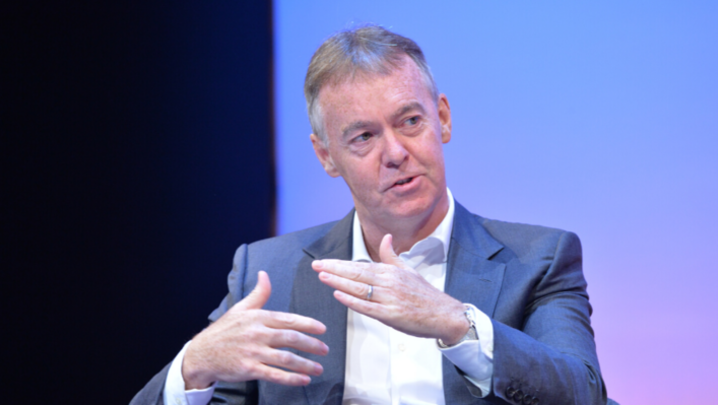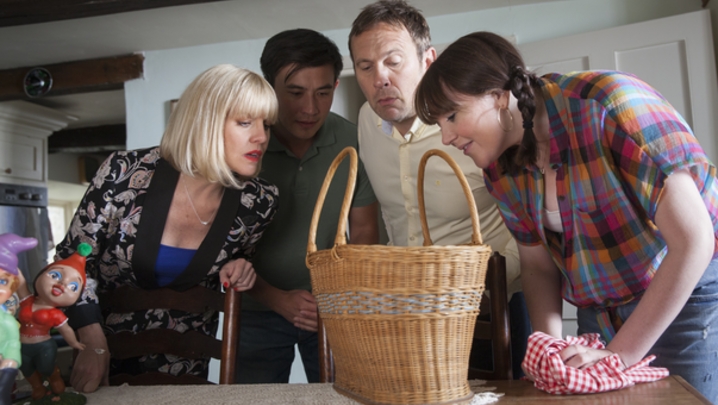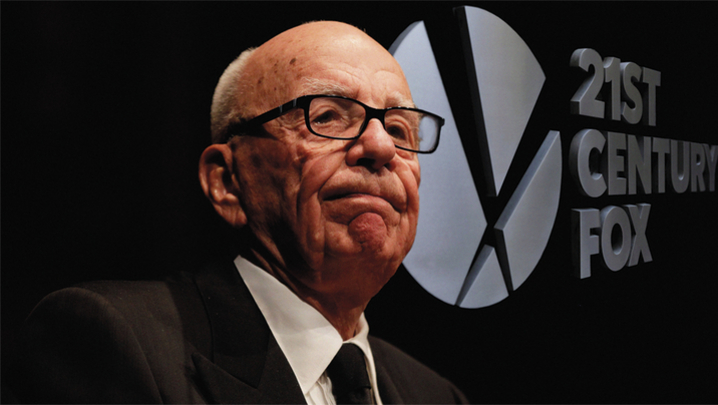As more subscription on-demand services launch in the UK, Raymond Snoddy asks if pay-TV’s days are numbered.
Later this month, NBCUniversal will launch Hayu, a new subscription online video service devoted to reality television shows, such as The Real Housewives franchise and Don’t Tell the Bride. It follows hard on the heels of Seeso, another subscription video on-demand (SVoD) offering from NBCU, but this time devoted to comedy and entertainment shows, ranging from Saturday Night Live to Monty Python’s Flying Circus.
Seeso’s arrival in January came as DisneyLife was launching its Netflix-like streaming service in the UK, featuring a wide range of Disney films and TV shows, plus music and audio books.
Will this sudden flurry of new, direct-to-consumer, ad-free, subscription services backed by major American studios lead to renewed pressure on pay-TV companies? Sky and Virgin have already had to adjust to the arrival of Netflix and Amazon Prime.
Indeed, could this be a trend that will undermine the prospects for UK pay-TV operators? In other words, is US-style cord-cutting – customers terminating their cable or satellite subscriptions – starting to cross the Atlantic, with viewers opting instead for cheaper SVoD deals?
Guy Bisson, Research Director of consultancy Ampere, believes that more such online initiatives will be launched in the months ahead. He suggests that the trend is gathering pace.
Pierre Lescure, for instance, the French media veteran who founded Canal+, is in the course of launching Molotov. This new online service will draw on the Netflix experience, but will also carry live television broadcasts.
In the UK, consumer research has identified a segment of young, affluent viewers who are starting to engage with a wide range of SVoD services.
“We think that they are building their own packages, which generally involve multiple SVoD services – Netflix, of course, but also Amazon Prime and Spotify. They might also throw in a Now TV subscription from Sky,” says Bisson. Parents with young children might also subscribe to Hopster, which provides programmes and learning games for kids aged two to six.
However, the consultant does not believe that the US experience of cord-cutting will be replicated in the UK. So, pay-TV companies can relax – at least for the time being.
But he adds that traditional operators such as Sky will have to “keep moving and keep delivering” the flexibility that many consumers appear to want.
If you are looking for a victim of Netflix, look at Blockbuster and the gradual decline in watching DVDs
Ampere’s view is that the new direct services backed by US studios will become part of what it calls “the next-generation bundle” of channels and services.
“Who will end up providing that? It’s up for the taking,” says Bisson. “Clearly, Sky is in a good position to do that, as is Virgin and, eventually, BT.
“We are not saying that they [the pay-TV operators] are going to lose everything. They are in a strong position to provide that bundle, but things are clearly moving in that direction.”
It is a reasonable assumption that the new SVoD services will reduce the growth prospects of the existing giants, Netflix, Amazon Prime and iTunes. The new entrants aim to cut out the middlemen and use the latest online technology to go straight to consumers on multiple devices.
Services may be evolving faster than the economic models that will support them. But there is a near universal view in the UK media industry that, however much viewing habits change over time, the threat from US-style cord-cutting in the UK has been greatly exaggerated.
There is a consensus that SVoD will remain what it is now – a supplement, rather than a substitute, for existing offers.
As consultancy Deloitte has emphasised, three quarters of subscribers to an SVoD service in the UK also subscribe to mainstream pay-TV. Moreover, Virgin and BT – though not, so far, Sky – offer Netfix to their customers.
Sky CEO Jeremy Darroch argues that cord-cutting occurred in the US because its pay-TV market was close to saturation.
He thinks that American consumers are reacting against being forced to pay relatively large sums of money for the inflexible “big bundle”.
By contrast, channel packages have been segmented in the UK for at least 10 years. Sky offers different bundles aimed at different markets and, since 2012, it has had its own online service, Now TV. At the more expensive end of the market, it has just added Sky Q, which allows subscribers greater flexibility in how they use their TVs and mobile devices.
“In Europe, we still have this great opportunity of growing penetration and embracing new technology to unlock new pockets of demand. The drivers of cord-cutting are just not here,” Darroch argued at the Web Summit in Dublin in November.
Subscriber numbers appear to support Darroch’s argument. In the six months to the end of December, Sky said it added 337,000 new customers – its highest growth in the UK and Ireland for 10 years. Sky now has more than 12 million customers across the two countries.
Virgin is stable at around 3.7 million subscribers. BT Television has more than 1.3 million customers, a figure that was boosted by its winning bid for the Champions League football rights.
Thinkbox, the commercial television marketing body, reveals some interesting data in its analysis of all video viewing in the UK during 2015.
SVoD accounted for 4% of the viewing time of all adults and 8.7% among 16- to 24-year-olds.
Broadcasters had a 76% share of viewing for all individuals, including catch-up, while the percentage dropped to 57.5% for the younger group.
The main change from the previous year was that the rise in SVoD viewing seems to have been at the expense of the DVD market.
Thinkbox Chief Executive Lindsey Clay does not believe that SVoD services such as Netflix pose a real threat to TV in the UK.
She suggests that Netflix is like an ad-free TV service. And, anyway, much of its content comes from broadcasters. “People who are massive fans of TV are the most likely to also get Netflix,” says Clay. “So, if you are looking for a victim of Netflix, look at Blockbuster and the gradual decline in watching DVDs.”
This view is echoed across the industry. Simon Brown, Head of Strategy and Research at UKTV, sees SVoD services as just the icing on the cake. They are a positive development because they grow the overall market.
Richard Cooper, Director of Video Research at IHS Technology, agrees that SVoD is a supplement. It has both enhanced the market and forced pay-TV operators to examine their services and provide “some of that compelling ‘over the top’ [over the open internet] availability”.
Cooper says that there is absolutely no evidence to support the idea that a fundamental shift in the TV market is under way.
“We are seeing some fluctuations, largely based on people’s disposable income. Most of the worry around these SVoD services has been hype. They have been very complementary to existing pay-TV,” says Cooper.
Patrick Barwise, a marketing specialist at the London Business School, takes a long-term, sardonic view of those predicting a TV apocalypse.
He likes to quote the famous US media guru George Gilder, who wrote in 1990 that TV was the tool of tyrants and its overthrow was at hand.
Gilder also predicted that the internet would usher in a golden age for newspapers.
Four years ago, Barwise wrote an article headlined: “Waiting for ‘Vodot’ – why video-on-demand won’t happen.”
Barwise is unrepentant, although he concedes that the direction of travel is now towards more online viewing.
“This is really about the rate at which viewing online becomes mainstream, as opposed to supplementary, for those people who are online. And 10 million adult citizens in the UK are, for practical – video – purposes, not online,” says Barwise.
In the meantime, the London Business School academic notes that we have this rather remarkable technology that doesn’t slow to a crawl if your neighbours are all watching the same thing at the same time. It’s called – wait for it – broadcasting.







